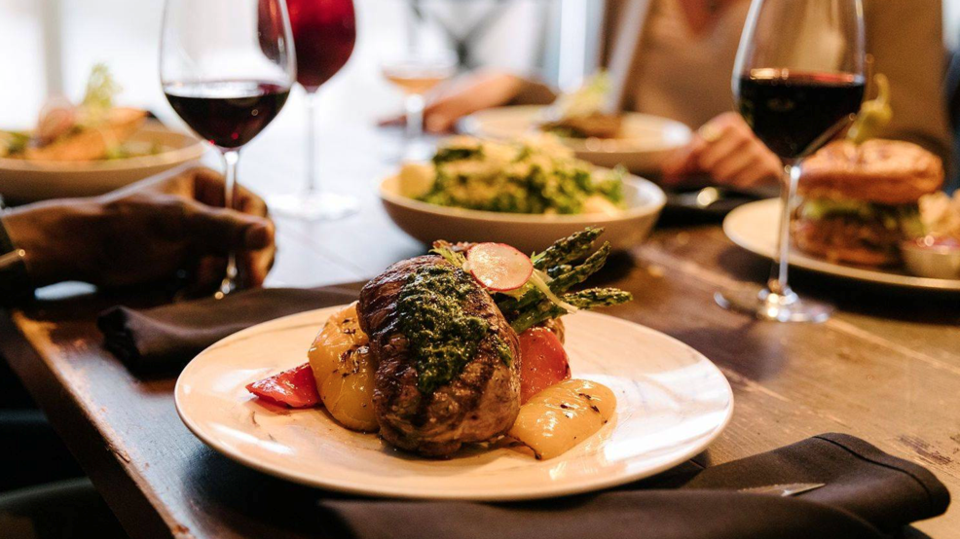As we head into our second winter season under the shade of the pandemic, Whistler continues to adapt to the new shape of tourism.
It’s definitely going to help that the Canadian government has lifted the travel advisory, and messaging is going out that we are open for business, but we can’t expect it will be anything like a normal, pre-COVID-19 year. (And, yes, staff shortages are wreaking havoc as well. See page 16 for a news story on the issue.)
Obviously the announcements made last month federally about the ongoing financial support being offered to some in tourism are helpful. The new $7.4 billion measures will extend the Canada Recovery Hiring Program until May 7—this covers up to 50 per cent of the extra salary costs of eligible businesses and was set to expire on Nov. 20.
Then there’s the Tourism and Hospitality Recovery Program, which will provide support to hotels, restaurants, travel agencies and tour operators at a subsidy rate of up to 75 per cent. Another measure—the Hardest-Hit Business Recovery Program—will provide wage and rent subsidies of up to 50 per cent to businesses that can show “deep and enduring losses.” This could also be claimed by some in the tourism sector.
Applicants for the tourism and hospitality program must show average monthly revenue losses of 40 per cent over the course of 12 months of the pandemic and a loss of 40 per cent in the current month.
Those applying for the “hardest-hit” program must demonstrate an average monthly revenue loss of 50 per cent and a loss of 50 per cent in the current month.
Businesses that face temporary, new, local lockdowns will also be eligible for “up to the maximum amount of the wage and rent subsidy programs” regardless of losses over the course of the pandemic, announced the Liberals. (What might happen is we become a super spreader community, as occurred last year.)
Let’s hope that we don’t experience that due to a flare up of COVID-19 when the mountains open and travellers come here to enjoy the outdoors!
We are told our new federal minister for tourism Randy Boissonnault, who lives in Edmonton, is an entrepreneur, community leader, and philanthropist who has a record of leadership in business, public service, and the not-for-profit sector. An Oxford Rhodes Scholar, he spent 15 years helping small and medium-sized businesses through his consulting company. He served as parliamentary secretary to the Minister of Canadian Heritage from 2015 to 2017, championing Canadian arts and culture, and was Prime Minister Justin Trudeau’s special adviser on LGBTQ2 issues.
Said Walt Judas, CEO of the Tourism Industry Association of BC, “ … the fact that he’s from the West and now has specific duties related to tourism and finance, bodes well for our industry’s future, especially in view of new tourism and hospitality specific support measures recently introduced that are so desperately needed for businesses to survive and rebuild.”
And speaking of surviving and rebuilding—this week sees the return of our beloved Cornucopia festival, heading into its 25th year. Cancelled last year due to coronavirus, it too is adapting, so for 2021 the 125 events will be held Thursdays through Sundays in November.
In pre-pandemic times it has drawn up to 10,000 people to the resort. It is a great opportunity to support our friends in food and beverage; indeed the festival was designed to showcase and bolster the sector.
For several years the festival has received support from the municipality through its Festivals, Events and Animation program. Falling under the Attract, Retain and Augment (ARA) programming for third-party events, Cornucopia is to receive up to $80,000 in 2021. These funds come from the province via the Municipal and Regional District Tax and Resort Municipality Initiative funds.
While it may seem counterintuitive to spend money on a festival of this type during a pandemic, hosting it safely—it will operate under strict public-health mandates—will surely show travellers that Whistler should be a destination of choice.
Continuing to host these types of events also creates a type of continuity for Whistler, almost like muscle memory for visitors. COVID-19 and other changes to much-loved events such as the World Ski and Snowboard Festival have seriously eroded that visitor memory. Way back in 2011, the Canadian Sports Tourism Alliance measured the economic impact of Cornucopia and concluded the event produced $4 million in total economic impact in B.C.; $2.3 million in Whistler.
Here’s to getting back to those days in the coming years. For now, bottoms up and bon appétit.




